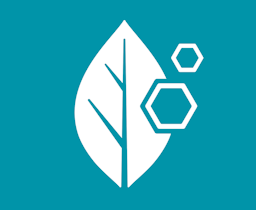Secrets of beautiful skin

Sure, a silky coat is in part determined by genetics, but there are a lot of preventive strikes you can make to keep it in top condition. Fiona Hogan, naturopath and director of skincare company, Oväme, reveals some of her best tips.
Sure, a silky coat is in part determined by genetics, but there are a lot of preventive strikes you can make to keep it in top condition. Fiona Hogan, naturopath and director of skincare company, Oväme, reveals some of her best tips.
Q. What factors impact upon the look and health of our skin?
A. Fiona Hogan: Firstly, food. A balanced diet full of whole foods and high in fibre, fruits, vegetables and protein sources is best. Also make sure you get regular exercise – stretch or take a walk every day. Get fresh air, sleep with your window open and breathe deep long breaths.
Hydration, of course, has a massive impact on our skin. Drink at least 1.5 litres of water per day. Relaxation is another big one – take half an hour a day to yourself – and make sure you're getting enough sun. Sunshine adds vitamin D into our system and gives us a healthy glow.
Q. What foods promote great skin?
A. Fruits and vegetables high in antioxidants protect our skin from damage, and proteins, including raw seeds, nuts and legumes, help build and repair our skin.
Q. And which foods have the opposite effect?
A. Harmful foods include processed and refined foods, biscuits, cakes, sugary cereals, muesli bars, ice-creams and sweets. Take-away foods are also a no-no for skin, and eating too much can cause problems, too.
Keep meal sizes small and interesting, taste and enjoy food, and try not to over-eat or over-indulge.
Q. Which supplements can improve skin health and how do these work?
A. Essentially fatty acids are a great one for skin. Fish oil in particular helps hydrate the skin, as does flaxseed oil (it can be handy to add this to a bowl of cereal in the morning).
Here's the low-down on the antioxidant group [pollutants, sun, stress, alcohol, cigarette smoke and some medications can cause our bodies to produce potentially harmful chemicals, known as free radicals.
Antioxidants are nutrients that reduce the risk of cell damage attributed to free radicals:
- Vitamin C – promotes collagen-production and improves skin tone
- Vitamin A – aids healing and constructs new skin tissue
- Vitamin E – protects against damage from free radicals
- Grape seed extract – a high potency antioxidant which protects the skin
- Zinc – repairs and strengthens tissue
- Silica – plays an important role in skin strength and elasticity
Q. How can creams and cleansers make a difference and what daily/weekly routine would you recommend?
A. Creams and cleansers are great for the skin. A good quality cream free of petro-chemicals and animal products can help hydrate, re-store and protect our skin. A good quality cleanser will assist in keeping the skin clean from dirt and particles that can clog pores and not allow it to breathe.
A daily routine I'd recommend would go as follows:
1. Clean
Wash and clean your skin daily, it will unblock pores and prevent skin from becoming flat, flaky and appearing lifeless. By removing dead skin cells you will prevent the build-up of impurities caused by pollutants, make-up, perspiration and environmental toxins.
2. Tone and hydrate
The skin requires oil and water to hydrate and create balance. It is best to use an alcohol-free toner as this may dry the skin. Hydrosols are great they add moisture and nutrients to the skin.
3. Moisturise
A moisturiser will act by deeply hydrating and nourishing the skin (even restoring balance). A good quality product can assist by reducing the appearance of skin damage whilst hydration may assist in the prevention of wrinkles.
Weekly or fortnightly it is a great idea for you to apply a clay mask, which will remove any deep-seated clogs or nasties.
Q. What are some easy changes men and women can make in order to improve the health of their skin?
- Exercise at least three hours a week
- Drink eight to ten glasses of water every day
- Go outside and enjoy fresh air and nature – walk in the park or by the beach
- Take in a little bit of sunshine, but avoid the harsh hours of 11am-3pm
- Once a week, swim in saltwater if you can Sleep with your window open and have fresh air come into your bedroom
- Meditate and relax your mind
- Eat a well-balanced diet of whole foods, including berries and watermelon
- Don't smoke, reduce the intake of alcohol and coffee
- Remember to smile

Blackmores The articles produced by Blackmores are authored by a dedicated team of expert writers who tailor their content to address topics that resonate with our community's interests.
- DATE
- 24 Oct 2023
- AUTHOR
- Blackmores
- CATEGORY
- SHARE